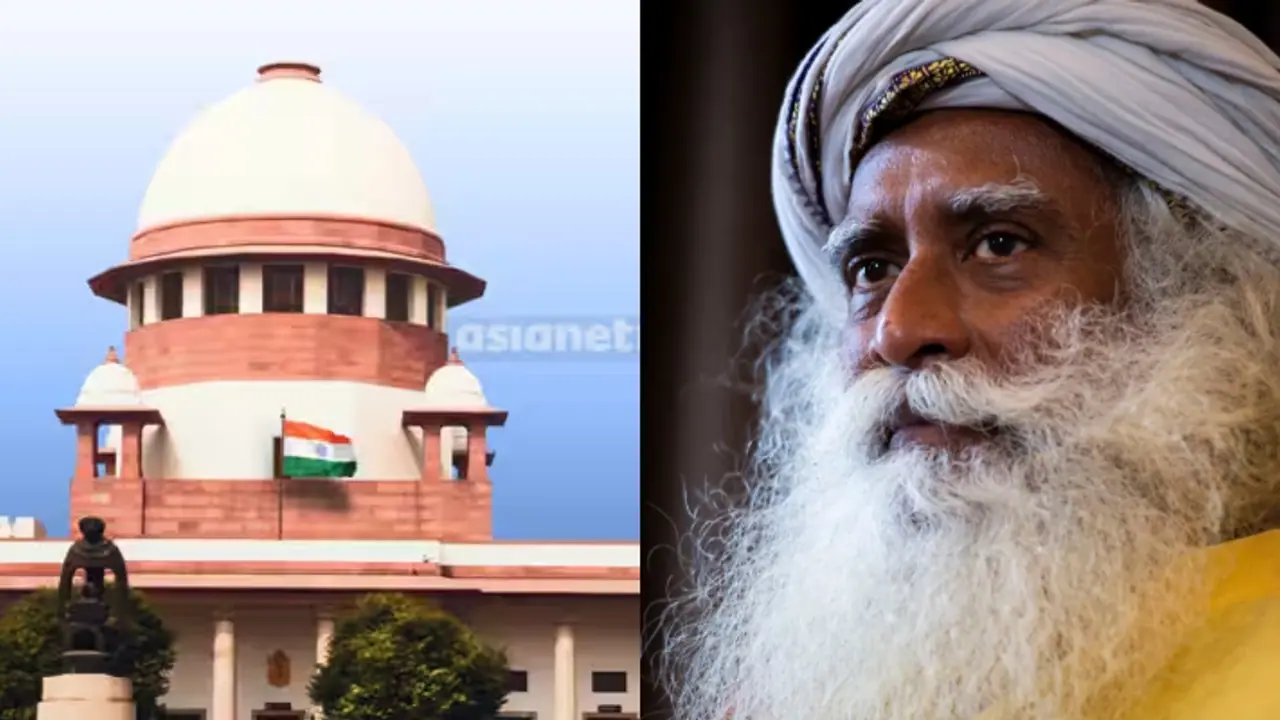The Supreme Court dismissed all legal proceedings against the Isha Foundation, ruling that the daughters, Geeta and Lata, are adults living there voluntarily. The court criticized the Madras High Court's handling of the case and affirmed that the women were not unlawfully detained.
On Friday, the Supreme Court dismissed all legal proceedings against the Isha Foundation. This decision came after a father claimed that his two daughters had been "brainwashed" into joining the ashram run by spiritual leader Sadhguru in Coimbatore, Tamil Nadu. The court also ruled that the family could not have contact with the woman.

The petition, which alleged that the women were unlawfully detained, was rejected by a bench led by Chief Justice DY Chandrachud. The court stated that both daughters, Geeta and Lata, are adults who have chosen to live in the ashram of their "own free will." The Supreme Court made it clear that this order only pertains to the current case.
Supreme Court stays Tamil Nadu Police action against Sadhguru's Isha Foundation; transfers case from HC
Chief Justice Chandrachud criticized the Madras High Court for mishandling its inquiry into the habeas corpus petition. He noted that since both daughters were adults—aged 27 and 24 when they joined the ashram, the purpose of the habeas corpus petition was met when they appeared in court.
The Chief Justice stressed that such proceedings should not be used to "malign people and institutions," according to reports from the legal news site Live Law. Earlier this month, the Supreme Court had taken over the case from the Madras High Court and stopped a police investigation into the father’s claims.
Police probe Coimbatore office of Jaggi Vasudev's Isha Foundation after Madras HC order
Following the High Court's order, hundreds of police officers raided the Isha Foundation, leading to the Supreme Court appeal against the police inquiry within the ashram. The Isha Foundation has consistently denied these allegations, asserting that the women, now 42 and 39, are willing residents.
During the court proceedings, one daughter appeared via video link. She confirmed that both she and her sister chose to live at the ashram willingly and stated that their father had harassed them for eight years, with their mother also involved.
Isha Foundation denies forcing people into marriage or monkhood, emphasizes individual freedom to make choices
Senior advocate Mukul Rohatgi, who represented the Isha Foundation, pointed out that even the Tamil Nadu Police's status report confirmed that the women were living at the ashram voluntarily. The Supreme Court also spoke to the father directly, advising him that he could not "control" the lives of his adult daughters. He was encouraged to "win their confidence" instead of filing legal petitions.
In the end, the Supreme Court closed the habeas corpus petition against the Isha Foundation. The ruling confirmed that the two women were not confined but had chosen to live at the ashram freely. The bench, which included Justices JB Pardiwala and Manoj Misra, highlighted that the case should have concluded once the daughters expressed their willingness to stay at the ashram
